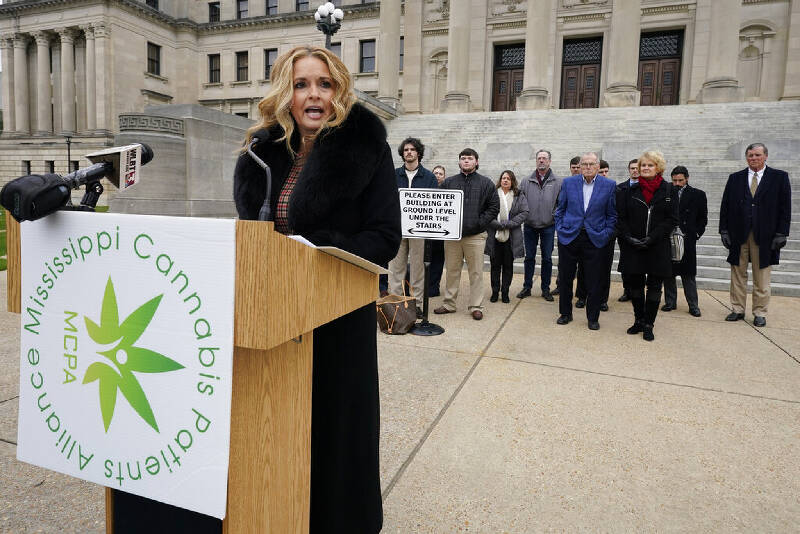
The Tennessee Valley Authority has attracted a record amount of economic investment over the past five years, but a conflict between federal and state laws over growing and processing marijuana is threatening to undermine the growth of the emerging marijuana-growing industry in parts of the Tennessee Valley that have legalized growing the plant for medical purposes.
TVA, America’s biggest government utility, may have already discouraged some marijuana growers from locating in the Tennessee Valley when the federal utility issued a policy statement that raised questions about whether TVA could legally offer its power or might report to federal authorities those who participate in what is still an illegal business under federal law.
In a directive to TVA employees earlier this month, the utility said “federal resources and funds may not be purposely used to facilitate activity that potentially violates federal law,” including the production of marijuana, which remains an illegal Schedule 1 substance under the federal Controlled Substance Act of 1970.
“If a TVA employee learns that an end-use customer served by a local power company is engaged in activity that may violate federal law governing marijuana, the employee will report the activity to their management, and TVA management will make a determination regarding our reporting obligations to agencies that may have proper jurisdiction to enforce the federal Controlled Substances Act,” TVA said in its Feb. 2 policy statement.
Last week, TVA sought to clarify what officials concede is “a complex and evolving” issue by confirming it will provide electricity to all local power companies under its power purchase contracts, including in Mississippi, where growing marijuana for medical purposes will begin in June. However, the federal utility also is asking for clarification from the U.S. Department of Justice.
“There will be no interruption in service because of this newly signed law [legalizing medical marijuana in Mississippi],” TVA said. “The broader issue is a complex one and represents a conflict between state and federal law. We are looking to the appropriate federal agencies for further clarification and have requested additional guidance.”
Mississippi Public Service Commissioner Brandon Presley said TVA may have already damaged the budding marijuana industry in the utility’s service territory in North Mississippi.
“TVA’s statement has already caused some medical marijuana facilities to look at other areas of the state … possibly denying North Mississippians the benefits of this newly passed medical marijuana program,” Presley said in a statement last week.

Presley said in his view, “TVA’s oversight ends once power is delivered by the TVA to a local utility.”
TVA said as a federal utility it must follow federal rules and regulations, even though in the case of cultivating or processing marijuana, federal law may undermine one of the charter goals of TVA to promote economic development.
The coverage area for TVA’s wholesale electricity includes three states with legal cannabis: Mississippi, Virginia and Alabama.
TVA supplies electricity in its seven-state region to 29 direct-served industries and 153 municipalities and power cooperatives that distribute the power to 10 million homes and businesses. Most of the electricity users in the TVA region are customers of local power companies and not TVA.
U.S. Reps. Steve Cohen, D-Memphis, and Earl Blumenauer, D-Oregon, members of the Congressional Cannabis Caucus, said in attempting to limit the cannabis industry, TVA “is blatantly ignoring” what they called “a big step forward” by Mississippi and 36 other states to legalize cannabis for medical use “by threatening to turn in legal cannabis businesses in Mississippi to federal agents.”
“These policies are outdated, unpopular and scientifically baseless,” Cohen and Blumenauer said in a joint statement urging TVA to make a “swift rescission” of its policy.
Despite state laws legalizing marijuana, federal law continues to prohibit the production, distribution and possession of marijuana for both medicinal and recreational purposes.
In response to differences in federal and state laws regarding marijuana production and distribution, Congress has enacted appropriation measures prohibiting the U.S. Department of Justice from expending federal funds to prevent states from implementing their own medical marijuana laws. Federal courts have interpreted such appropriation language to bar criminal drug prosecutions against some private individuals, but courts have differed over the scope of conduct that is shielded from prosecution, according to the Congressional Research Service.
Contact Dave Flessner at dflessner@timesfreepress.com or 423-757-6340. Follow him on Twitter @dflessner1.

